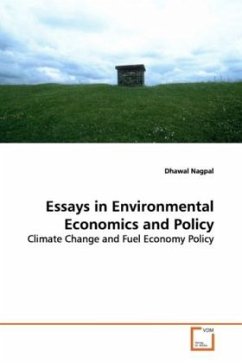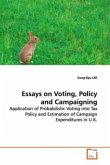This book comprises two essays that study normative
environmental
policy and the purported side effects of (already
enacted)
environmental policies.
In the first essay, we analyze the management of a
stock
pollutant in a simplified economy using optimal
control. A
numerical illustration for the case of global climate
change shows
that decision maker can delay the onset of a
catastrophe by
increasing abatement (by investing into green
capital); and by
improving the environmental performance of production
technology.
In the second essay, we analyze the alleged
causality of this
increased share by the introduction of fuel economy
standards. We
estimate the market demand for fuel economy of
domestic cars and
light trucks using a polynomial lag model. The main
result of this
essay is that the rising share of light trucks in the
new domestic
vehicle sales can be attributed to the increase in
personal incomes
during the 25 years considered, aided by the
provision of laxer fuel
economy standards for light trucks. Moreover, the
fuel economy
standards did increase the fuel efficiency of
domestic vehicles.
environmental
policy and the purported side effects of (already
enacted)
environmental policies.
In the first essay, we analyze the management of a
stock
pollutant in a simplified economy using optimal
control. A
numerical illustration for the case of global climate
change shows
that decision maker can delay the onset of a
catastrophe by
increasing abatement (by investing into green
capital); and by
improving the environmental performance of production
technology.
In the second essay, we analyze the alleged
causality of this
increased share by the introduction of fuel economy
standards. We
estimate the market demand for fuel economy of
domestic cars and
light trucks using a polynomial lag model. The main
result of this
essay is that the rising share of light trucks in the
new domestic
vehicle sales can be attributed to the increase in
personal incomes
during the 25 years considered, aided by the
provision of laxer fuel
economy standards for light trucks. Moreover, the
fuel economy
standards did increase the fuel efficiency of
domestic vehicles.








